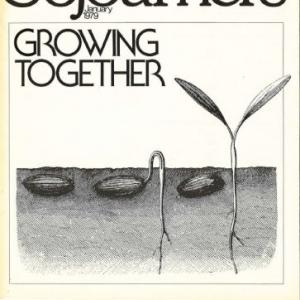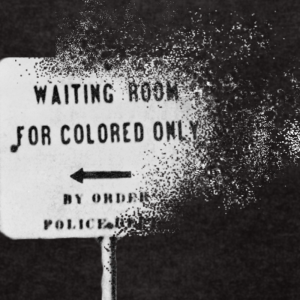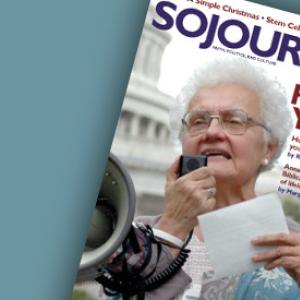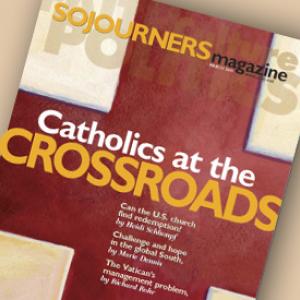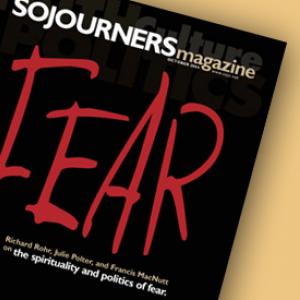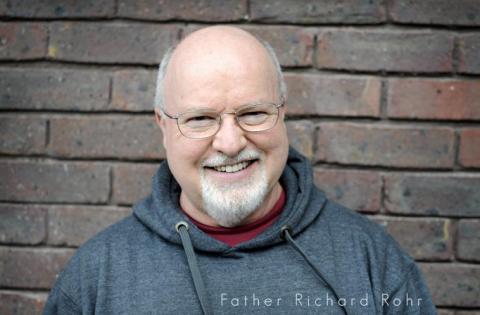
Father Richard Rohr is a globally recognized ecumenical teacher bearing witness to the universal awakening within Christian mysticism and the Perennial Tradition. He is a Franciscan priest of the New Mexico Province and founder of the Center for Action and Contemplation (CAC) in Albuquerque, N.M. Father Richard's teaching is grounded in the Franciscan alternative orthodoxy — practices of contemplation and lived kenosis (self-emptying), expressing itself in radical compassion, particularly for the socially marginalized.
Father Richard is author of many books and his newest book, The Divine Dance: The Trinity and Your Transformation is available for order now at www.thedivinedance.org.
CAC is home to the Rohr Institute where Father Richard is academic dean of the Living School for Action and Contemplation. Drawing upon Christianity’s place within the Perennial Tradition, the mission of the Rohr Institute is to produce compassionate and powerfully learned individuals who will work for positive change in the world based on awareness of our common union with God and all beings.
Posts By This Author
From the Archives: January 1979
This article originally appeared in the January 1979 issue of Sojourners. Read the full article in the archives.
THE REAL WAY to be biblical and to respect biblical authority is to do what biblical people did and in the way that they did it. It is not to quote biblical sources or uncover the deep and secret meanings of biblical texts. The authority of words, even inspired words, must somehow be based in the de facto authority of accomplished deeds, redeemed peoples, and living bodies. In other words, it has to have worked somewhere, sometime, with someone, or it is an idealized abstraction. I find that a great many people who put themselves under the cope of religion are, in fact, people who enjoy ideology and abstraction as an escape from real commitment and real conversion.
Why I Vote
A Deeply Moral Act
Voting is a decisive statement of Christian faith that I matter, justice matters, and others matter.
by Richard Rohr
Low voter turnout is generally a sign of a demoralized society, and people of power feed on that demoralization, knowing that they can then easily gerrymander, suppress and limit voting rights, and give elections to the rule of money and lobbyists—and there will be little outcry, because there is so little trust or even interest in the whole system anyway.
Yet this is largely where the U.S. is today.
The powers that control society are quite happy that it is always minorities of all stripes that first feel this powerlessness and this demoralization. Since the early days of representative government, it has been believed that democracy would only work if there was a truly free and informed citizenry. We presently seem to lack both in the U.S. This is why voting is a deeply moral act for me—in rebuilding confidence and encouraging an intelligent and hope-filled society. It is also a decisive act of Christian faith that I matter, society matters, justice matters, and others matter.
Not to vote is to hand our power and our dignity over to people who fear actual freedom, honest intelligence, and faith in the very goodness of humanity.
Voting for Change
I vote because many of my brothers and sisters can’t.
by Myrna Pérez
I vote for a lot of reasons. I love joining my fellow citizens in a community-minded act. I love having a say in picking the leaders who get to decide on things that matter to me. Increasingly, I love to vote and feel compelled to vote because I know there are about 4.5 million Americans living and working in communities across the country who cannot because they have a criminal conviction in their past.
A Light from Nowhere
AFTER YEARS OF retreat work and spiritual direction in many contexts, I have come to see that it is very hard to heal individuals or institutions when the larger culture itself is in shock or despair. If there is at least some level of cultural hope or optimism, the healing process moves much easier and creativity flourishes.
When the shades are all pulled down, and so many are content to live in a dark room, it is much harder to enlighten any one part of the room. The shared panic makes high-level responses much more difficult. (Yet, to be honest, it emboldens the rare few too!)
I hope this does not sound too clever or current, but I do believe that much of the world, and surely the United States, is presently in a state of collective post-traumatic stress. We sit stunned by what is happening around us, to us, on our newsfeeds—thrashing around for explanations and answers—inside of incoherence at so many levels. I guess St. John of the Cross would call it a “dark night of the soul,” but it’s not an individual experience. We are now in it together.
How God as Trinity Dissolves Racism
This summer, as has been true for the past few summers, racism has made headline news. Deep divisions have been put in the spotlight, and it can sometimes feel as if that spotlight has served to dig them even deeper.
But we can’t confront racial strife if we don’t acknowledge that it exists. The challenge is that racism does not just have a deep root, but has many deep roots in our lives, communities, and country.
'Radical' Politics?
True religion is radical. It moves us beyond our “private I” and into full reality. Jesus seems to be saying in the Sermon on the Mount (Matthew 5-7) that our inner attitudes and states are the real sources of our problems. We need to root out the problems at that level. Jesus says not only that you must not kill, but that you must not even harbor hateful anger. He clearly begins with the necessity of a “pure heart” (Matthew 5:8) and knows that the outer behavior will follow. Too often we force the outer and the inner remains like a cancer.
The Activist's Guide to Contemplation
Untransformed liberals often lack the ability to sacrifice the self or create foundations that last. They can’t let go of their own need for change and control and cannot stand still in a patient, humble way as people of deep faith often can. It is no surprise that Jesus prayed not just for fruit, but “fruit that will last” (John 15:16). Conservatives, on the other hand, idolize anything that lasts, but then stop asking the question, "Is it actually bearing any fruit?" It is the perennial battle between ideologues and pragmatism.
Grief, Courage, and Perseverance
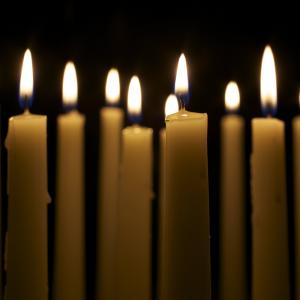
swatchandsoda / Shutterstock
[Editor's note: This article first appeared in our December 2013 issue to commemorate the one year anniversary of the Sandy Hook shooting.]
IN THE YEAR since the mass shooting at Sandy Hook Elementary School in Newtown, Conn., last Dec. 14, thousands more have died by gun violence, and the NRA seems to stymie sane firearm measures at every turn. How do we stave off despair, hold on to hope, and keep moving forward when the odds feel overwhelming? —The Editors
Bigger Than Politics
What do we say to those who are weary?
by Brian Doyle
WHAT WOULD I SAY to those who are weary of assault rifles mowing down children of all ages, every few months, for as long as we can remember now? Oregon Colorado Wisconsin Pennsylvania Connecticut Texas Massachusetts Minnesota Virginia do I need to go on? I would say that this is bigger than politics. I would say this is about money. I would say Isn’t it interesting that we are the biggest weapons exporter on the planet? I would say that we lie when we say children are the most important things in our society. I would say that the next time a tall oily smarmy confident beautifully suited beautifully coiffed glowing candidate for office says the words family values, someone tosses an assault rifle on the stage with a small note attached to it that reads Is this more important than a kindergarten kid?
We all are Dawn and Mary in our hearts and why we wait until hell and horror are in front of us to unleash our glorious wild defiant courage is a mystery to me.
I would also say, quietly, that this is bigger than rage and anger and snarling at idiots who pretend to hide behind the Constitution. I would say this is also about poor twisted lonely lost bent young men no one paid attention to, no one really cared about. And I would say that people like Dawn Hochsprung and Mary Scherlach, who ran right at the bent twisted kid with the rifle in Newtown, are the flash of hope and genius here. Those are the people I will celebrate on Dec. 14. There are a lot of people like Dawn Hochsprung and Mary Scherlach, may they rest in peace. We all are Dawn and Mary in our hearts and why we wait until hell and horror are in front of us to unleash our glorious wild defiant courage is a mystery to me. But it’s there. And there are a lot of days when I think the whole essence of Christianity, the actual real no kidding reason the skinny Jewish man sparked the most stunning possible revolution in history, is to gently insistently relentlessly edge us away from our savagely violent past into a future where Dawn and Mary are who we are, and you visit guns in museums, and war is a joke, and defiant peace is what we say to each other all blessed day long.
Brian Doyle is the editor of Portland Magazine at the University of Portland (Oregon) and the author most recently of The Thorny Grace of It, a collection of spiritual essays.
-----
An Insanity of Rationality
This spiritual disease thrives on violence and calls it good.
by Joan Chittister, OSB
THERE IS A MADNESS abroad in the land, hiding behind the Constitution, brazenly ignoring the suffering of many who, over the years, have died in its defense, and operating under the banner of rationality. It’s a rare form of spiritual disease that thrives on violence and calls it good.
They want a proper response to violence, they tell us, and, most interesting of all, they insist that only violence can control violence. If “the good guys” have guns, this argument goes, “the bad guys” won’t be able to do any harm.
The hope? The hope lies only in those who refuse to feed this addiction to violence.
This particular insanity of rationality argues that violence is an antidote to violence. Then why do we find scant proof of that anywhere? Why, for instance, hasn’t it worked in Syria, we might ask. And where was the good of it in Iraq, the land of our own misadventures, where the weapons of mass destruction we went to disarm did not even exist and the people who died in the crossfire of that insanity had not harbored bin Laden. So how much peace through violencehave all the good guys on all sides really achieved?
The insanity of rationality says it is only reasonable to arm a population to defend itself against itself. And so, day after day, the level of violence rises around us as hunting rifles and small pistols turn into larger and larger weapons of our private little wars.
Clearly this particular piece of childish logic has yet to quell the gang violence in Chicago. It didn’t even work on an army base in Texas where, we must assume, the place was loaded with legal weapons.
What’s more, it does nothing to save the lives of the good guy’s children, who pick up the good guy’s guns at the age of 2 and 3 and 4 years old and turn them on the good guy fathers who own them.
So the mayhem only increases while white men in business suits insist that their civil rights have been impugned, their right to defend themselves has been taken from them, and more guns, larger guns, insanely damaging guns are the answer. Instead of hiring more police officers, they argue that arming students and teachers themselves, nonprofessionals, will do more to maintain calm and control the damage in situations specifically designed to cause chaos than waiting for security personnel would do.
It is that kind of creeping irrationality that threatens us all.
And in the end, it is a sad commentary on our society. We have now become the most violent country in the world while our industries collapse, our educational system declines, women are denied healthcare, our infrastructure is falling apart, and there’s more money to be made selling drugs in this country than in teaching school. No wonder gun pushers fear for their lives and sell the drug that promises the security it cannot possibly give while the country is becoming more desperate for peace and security by the day.
The hope? The hope lies only in those who refuse to feed this addiction to violence. These are they who remember again that we follow the one who said “Peter, put away your sword” when it was his own life that was at stake.
The hope is you and me. Or not.
Joan Chittister, OSB, a Sojourners contributing editor, is executive director of Benetvision, author of 47 books, and co-chair of the Global Peace Initiative of Women.
From the Archives: July 1994
THE FUNCTION of healthy religion and church is to provide individuals and society with a collective container that carries the objective truth of reality for individuals. The Great Truth is too grand and transcultural to be entrusted to the vagaries of individuals and epochs. Otherwise, society becomes a massive runway for unidentifiable flying objects—each claiming absolute validity and turning their subjectivity into the only sacred.
The ground for a common civilization and shared values is destroyed if our religious experience is basically unshareable or without coherent meaning. We end up where we are today: pluralism without purpose, individuation but no community.
Finding God in the Depths of Silence

Gumpanat / Shutterstock
WHEN I FIRST began to write this article, I thought to myself, "How do you promote something as vaporous as silence? It will be like a poem about air!" But finally I began to trust my limited experience, which is all that any of us have anyway.
I do know that my best writings and teachings have not come from thinking but, as Malcolm Gladwell writes in Blink, much more from not thinking. Only then does an idea clarify and deepen for me. Yes, I need to think and study beforehand, and afterward try to formulate my thoughts. But my best teachings by far have come in and through moments of interior silence—and in the "non-thinking" of actively giving a sermon or presentation.
Aldous Huxley described it perfectly for me in a lecture he gave in 1955 titled "Who Are We?" There he said, "I think we have to prepare the mind in one way or another to accept the great uprush or downrush, whichever you like to call it, of the greater non-self." That precise language might be off-putting to some, but it is a quite accurate way to describe the very common experience of inspiration and guidance.
All grace comes precisely from nowhere—from silence and emptiness, if you prefer—which is what makes it grace. It is both not-you and much greater than you at the same time, which is probably why believers chose both inner fountains (John 7:38) and descending doves (Matthew 3:16) as metaphors for this universal and grounding experience of spiritual encounter. Sometimes it is an uprush and sometimes it is a downrush, but it is always from a silence that is larger than you, surrounds you, and finally names the deeper truth of the full moment that is you. I call it contemplation, as did much of the older tradition.
It is always an act of faith to trust silence, because it is the strangest combination of you and not-you of all. It is deep, quiet conviction, which you are not able to prove to anyone else—and you have no need to prove it, because the knowing is so simple and clear. Silence is both humble in itself and humbling to the recipient. Silence is often a momentary revelation of your deepest self, your true self, and yet a self that you do not yet know. Spiritual knowing is from a God beyond you and a God that you do not yet fully know. The question is always the same: "How do you let them both operate as one—and trust them as yourself?" Such brazenness is precisely the meaning of faith, and why faith is still somewhat rare, compared to religion.
Bringing the Church Together for Justice
After having spoken at the Greenbelt Festival in England a number of times now, we at the Center for Action and Contemplation always hoped and planned that we create a similar festival for spirituality and the arts in the United States. We had nothing comparable, and it was a niche waiting and needing to be filled. Therefore, we were honored to be a part of the first Wild Goose Festival in North Carolina last June, and hope that we can convene a truly ecumenical, radical, and socially engaged crowd of people living at the intersection of justice, spirituality, and creativity -- and those who want to be!
Boys Don't Cry
...and other lies we tell men. Why developing an inner life is essential to healing men from the explosive violence bottled up within.
What Sustains Me: Contemplation
Forever Young
Understanding the true presence of Christ helps us become elders, not just elderly.
Humbled by Mystery
Red Letter Christian Richard Rohr was featured in today's NPR segment, This I Believe. Here's a choice nugget, but you can also read or listen to his entire reflection.
[M] any religious folks insist on [...]
Fear Itself
Unless we observe and surrender our small, daily anxieties, we won't recognize the really big fears, in all their disguises, that control our politics, our denominations, our bank accounts, and the world's future.
Beyond Crime & Punishment
Hearing confessions is a rather dangerous and lethal profession. It creates a kind of patience with sin that is often scandalous to outsiders. But confession is a very good thing about my Catholic tradition that might not be recognized in the midst of our shame about the pedophilia scandal.
Good confessional practice does not encourage you to read a situation in a forensic or argumentative context, and in fact quite the contrary. The whole purpose is healing and reconciliation. Ours is not "innocent until proven guilty" but actually "guilty and declared innocent." We start with the conviction and move therapeutically from there.
This wonderful pastoral practice is now to our severe disadvantage inside of the entirely different set of assumptions of the secular social order. This is a good reality check for us, but we Catholics (and all Christians) deserve to understand our own partly ignorant and partly vulnerable position in the world today. We have a very different agenda than the world. Some priests have surely been wolves among lambs, but we are also lambs in a very wolfish system of law and punishment. That is the world as it must be, exactly what Jesus promised us.
The confessor and the Christian judges evil in terms of its possibility for transformation and openness to grace; the dualistic secular mind knows only crime and punishment, quid pro quo—an "eye for an eye and a tooth for a tooth." We are grateful for a certain sense of social order that it gives us.
Grieving as Sacred Space
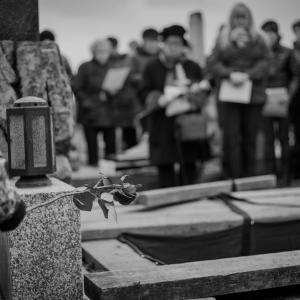
Alzbeta / Shutterstock
editor's note: This article was first published in the January-Febuary 2002 issue, only months after the attacks on September 11, 2001.
"They sat there on the ground beside him for seven days and seven nights. To Job they never spoke a word, so sad a sight he made." —Job 2:13
IN RECENT STUDIES of initiation rites, which seem to have been strategic for human survival in most of human history, I have discovered from Victor Turner the concept of "liminal space." He says that it is very hard to come by in the modern and now post-modern world. We are now too strategic, functional, and hurried to easily seek what the ancients sought above all else. Only pain is now strong enough to lead us into this unique place "where all significant transformation happens."
I suspect America is in a unique liminal space [post-Sept. 11]. Our attitudes are numbed, absolute, and strange. The old constituencies are unpredictable and misshapen. There is something new afoot, not only politically but also somehow archetypally and on the level of the psyche and soul. We are tipping on the balance, and usually God is an opportunist in such situations—waiting at the bottom of the slide.
Let me first explain what I mean by liminal or sacred space (I will use the terms almost interchangeably). "Limina" is the Latin word for threshold, the space betwixt and between. Liminal space, therefore, is a unique spiritual position where human beings hate to be but where the biblical God is always leading them. It is when you have left the "tried and true" but have not yet been able to replace it with anything else. It is when you are finally out of the way. It is when you are in between your old comfort zone and any possible new answer. It is no fun. Think of Israel in the desert, Joseph in the pit, Jonah in the belly, the three Marys tending the tomb.
